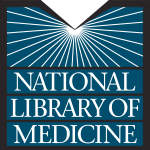- Industrie: Library & information science
- Number of terms: 152252
- Number of blossaries: 0
- Company Profile:
The National Library of Medicine (NLM), on the campus of the National Institutes of Health in Bethesda, Maryland, is the world's largest medical library. The Library collects materials and provides information and research services in all areas of biomedicine and health care.
Change from normal structure or function that persists or progresses after cessation of exposure of the organism.
Industry:Biology; Chemistry
Change in the chemical or physical nature of a substance occurring as a result of physicochemical conditions and independent of any biological system.
Industry:Biology; Chemistry
Change in the embryo and the regulation of its development.
Industry:Biology; Chemistry
Change occurring at the site of contact between an organism and a toxicant.
Industry:Biology; Chemistry
Changes in allelic frequencies that occur when a small group is separated from a large population and establishes a colony in a new location.
Industry:Biology; Chemistry
Changes in an organism brought about by alterations in the expression of genetic information without any change in the genome itself (e.g. base hypermethylation or histone modification).
Note: The genotype is unaffected by such a change but the phenotype is altered.
Industry:Biology; Chemistry
Chemical reaction of a substance with water, usually resulting in the formation of one or more new compounds.
Industry:Biology; Chemistry
Chemical transformation of substances resulting from interactions in the environment.
Industry:Biology; Chemistry
Chromosome state in which the chromosomes are present in homologous pairs.
Note: Normal human somatic (non-reproductive) cells are diploid (they have 46 chromosomes), whereas reproductive cells, with 23 chromosomes, are haploid.
Industry:Biology; Chemistry
